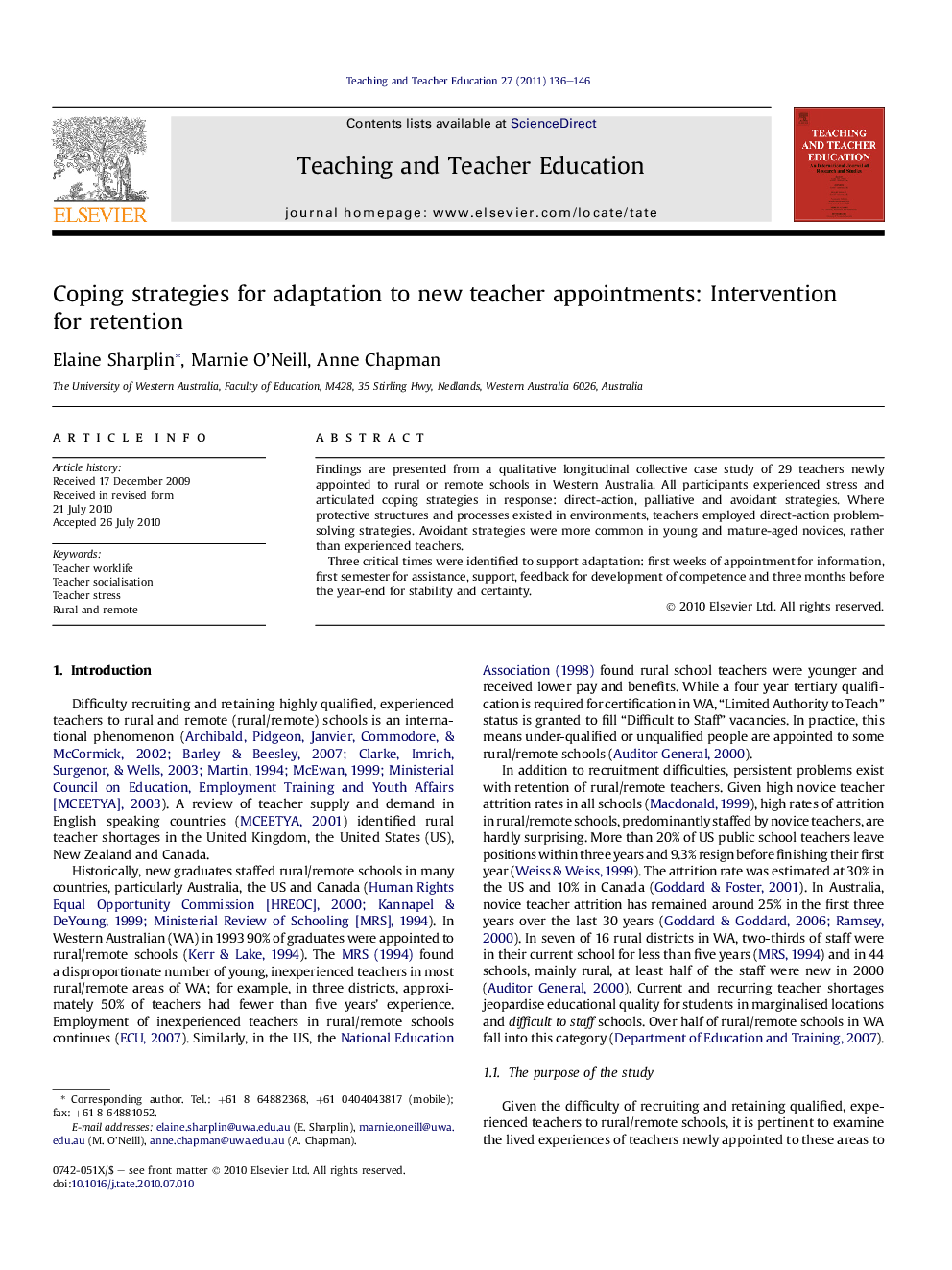| Article ID | Journal | Published Year | Pages | File Type |
|---|---|---|---|---|
| 374416 | Teaching and Teacher Education | 2011 | 11 Pages |
Findings are presented from a qualitative longitudinal collective case study of 29 teachers newly appointed to rural or remote schools in Western Australia. All participants experienced stress and articulated coping strategies in response: direct-action, palliative and avoidant strategies. Where protective structures and processes existed in environments, teachers employed direct-action problem-solving strategies. Avoidant strategies were more common in young and mature-aged novices, rather than experienced teachers.Three critical times were identified to support adaptation: first weeks of appointment for information, first semester for assistance, support, feedback for development of competence and three months before the year-end for stability and certainty.
